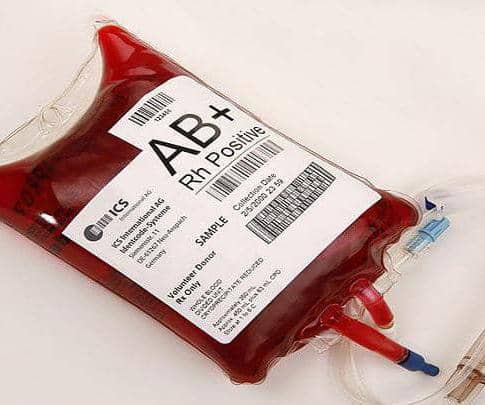شركة جريس لاند لخدمات الشحن
شركة جريس لاند لخدمات الشحن
*The Humanitarian crisis in* *Sudan assessing the impacts* of* *conflict* *Zakir Hussain*

- Auth admin
- 29 Jun, 2023
- 305
شركة شحن
The Sudan has always been finding in severe and deadly conflicts; due to the state's weak military, not ethnic or political factors, are the root causes of these conflicts, which are leading state to destruction and macabre consequences, particularly a continuous humanitarian crisis. The conflict is investigated as a power struggle between two military factions: the Armed Forces of Sudan (AFS), led by General Abdel Fattah Al Burhan, and the Rapid Support Force (RSF), led by General Mohamad Hamadan Dagalos, also known as Hemedti. Conflict can be traced back when Omer Al-Bashir's had remain in power about thirty years ; but he was overthrown in 2019 as a result of widespread protests against his authoritarian rule, allegations of corruption, an economic crisis, military interference, and a political crisis. General Abdel Fattah Al Burhan, the leader of the Sudan armed forces, assumed power and became the de facto head of Sudan after him. Prior to taking power, General Burhan promised that elections would be held in 2023 and that, per a deal with the RSF, civilian rule would begin in 2024. Despite this, General Burhan has backed to his agreement. In a result the Rapid Support Force (RSF) launched an attack on government facilities in Khartoum, the capital, on April 15, 2023. The attack resulted in an airstrike that left at least 700 people injured, more than 100 people killed, more than 100,000 people moved across the border, and thousands of people became internally displaced (IDP) and planned to settle in safer areas within the country. The state, which was already struggling, was further tarnished by the humanitarian crisis. The third month has seen the outbreak of the conflict, which has resulted in 3000 deaths, 11,714 injuries, 2.2 million displaced people, and 600,000 refugees migrating to neighboring states, particularly Egypt, Chad, and South Sudan. These refugees are primarily from Khartoum city and the western region of Darfur. The governor of west Darfur, Khamis Abdallah Abbakar, was assassinated by RSF because he publicly criticized the organization's actions, claiming that it is spreading genocide throughout the country in the name of democracy. In the conflict, not only locals but also foreigners were the victims. 15 Syrians, 15 Ethiopians, 9 Eritreans, 1 Indian working in Khartoum, 2 Americans, 1 Turkish child died when a rocket hit her home, and 1 student from the Republic of Congo died when a rocket hit him inside the International University of Africa in Khartoum city.
In Khartoum, an actress by the name of Asia Abdelmajid is killed. In Omdurman, a singer named Shaden Gardood was killed in a crossfire, and a national soccer player named Fozi-el-Mardi and his daughter were killed. Focusing on food insecurity as an additional humanitarian aspect of the conflict. which has had a significant impact on the people of Sudan. There are approximately 20 million people who are unable to obtain food, and it was estimated that one third of the population was already suffering from hunger prior to the outbreak of the current conflict. More than 620,000 people are malnourished, with more than 100,000 children under the age of five experiencing acute malnutrition. UNICEF estimates that 14 million children are seriously in need of humanitarian assistance. Since the conflict began, 162 humanitarian vehicles have been stolen, 61 offices and 57 warehouses have been looted, and health workers have been killed. In addition to hospitals, various NGO structures have also been targeted. The United Nations reports that 67% of hospitals are out of service. Malnutrition, chicken pox, pneumonia, diarrhea, cholera, malaria, and dengue are severely affecting both adults and children. So far, the conflict has disrupted health workers' ability to treat affected patients.
More than 24.7 million people in the state require assistance from the outside world. Although $1.5 billion was collected, the state still needs $15 billion to deal with the humanitarian crisis. The conflict in Sudan had significant effects and repercussions for the nation and its people. There had been violence, people had been displaced, essential services had been destroyed, and infrastructure had been destroyed. Additionally, these effects have made it more difficult to meet the population's basic needs. The emigration of millions of people is one of the most significant effects. Shelter, clean water, food, and health care were difficult for these displaced people and refugees. The people continue to suffer as a result of these conditions and instability. The devastation of infrastructure, such as hospitals, water, and sanitation facilities, has resulted in a lack of health care and worsened the situation for the population's future, particularly for children and young people.
In addition, these conflicts have created an atmosphere of violence and uncertainty, making it challenging to achieve national peace and stability. The crisis that broke out in Sudan as a result of the conflicts had devastating effects on the country and its people. effects such as uncertainty, violence, and displacement In order to resolve these crises, immediate efforts must be directed toward development and infrastructure construction. Sudan has the potential to move toward a more secure and prosperous future for its people only through commitment and collective action.
شركة جريس لاند لخدمات الشحن المختلفة
هل لديك تعليق؟
لن نقوم بمشاركة عنوان بريدك الالكتروني، من اجل التعليق يجب عليك ملئ الحقول التي امامها *
بحث
الاصناف
معرض الصور
الاشارات
مواقع التواصل
الاخبار المشابهة
البديل برس .. مؤسسة اخبارية مستقلة وشاملة .. شعارنا .. الدقة والشفافية والموضوعية في تناول القضايا السياسية والاقتصادية والاجتماعية والالتزام بمبادئ الصحافة الحرة.. هدفنا .. تقديم خدمة إخبارية مميزة ومختلفة.. من خلال متابعتنا للاحداث اول باول على مدار ٢٤ ساعة.. البديل برس .. منبر كل السودانيين الاراء المنشورة في الموقع لا تعبر بالضرورة عن رأي الموقع وانما عن رأي كاتبها
المقالات الاكثر شهرة
-
تعرف علي انواع فصائل دم الحيوانات
- 19 Mar, 2023
-
النيل يبتلع 14 شابا
- 30 Nov, -0001







